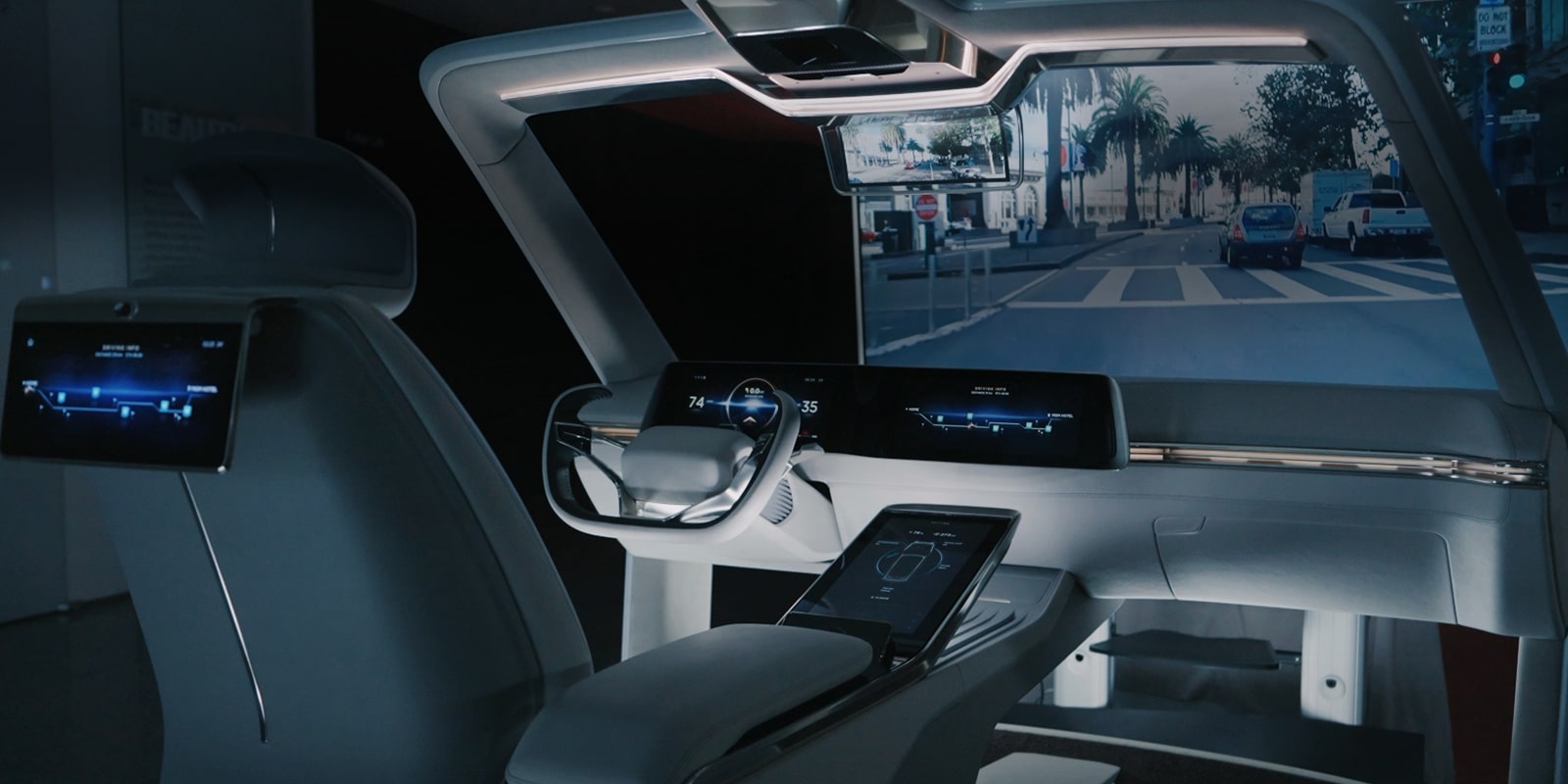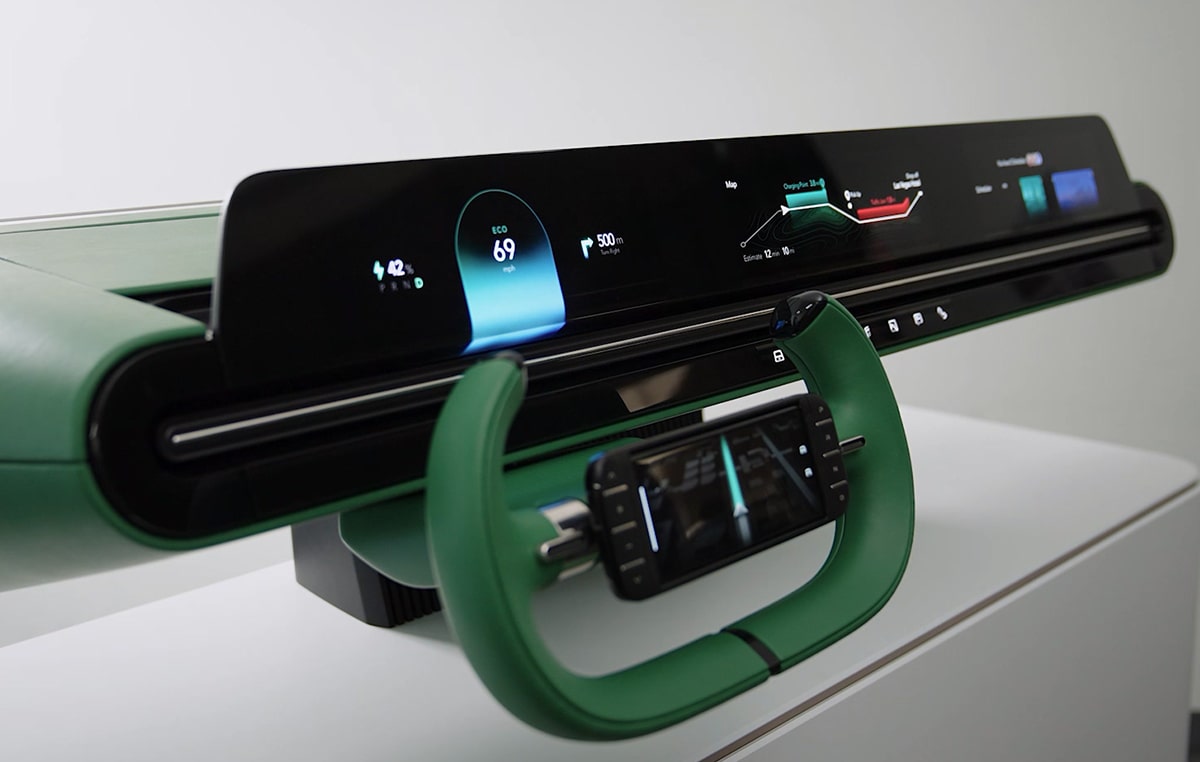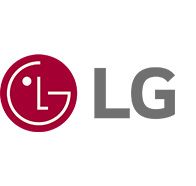Press Release
Corporate
08/24/2023

An image of the new Digital Cockpit concept from LG Electronics’ Mobility Labworks Series
Mobility is a field undergoing rapid change driven by continuous advancements in technology, such as electric vehicles (EV), autonomous vehicles, and connected cars. These changes mark a drastic shift in the automotive industry, which is transitioning from a product-oriented business into software-driven platforms based on advanced hardware. The emergence of software-defined vehicles has revolutionized the automotive industry, highlighting the increasing importance of and need for software in vehicles.
As a company dedicated to improving customer experiences, LG Electronics predicted this shift in the automotive industry and, for the last decade, heavily invested in the development of EV-related businesses. As outlined by LG CEO William Cho during a press conference in Seoul, South Korea in July 2023, LG aims to transform into a “smart life solution company,” connecting and expanding customers’ experiences from the home and office, to commercial areas and mobility. On top of advancing its business portfolio through innovative new products and services, the company also plans to accelerate business-to-business (B2B) areas.
The mobility business powered by EV is a key B2B area for LG. The LG Vehicle component Solutions (VS) Company is consistently exploring new ways to deliver enhanced convenience, safety, and future innovation technologies as a partner to its customers. LG bravely took the challenge in the EV market, and now the vehicle solutions business has established itself as one of the company’s future growth engines.

Min & Max Display concept image from LG Electronics’ Mobility Labworks Series
Accelerating Future Growth
The LG VS Company has grown at an annual average rate of 30% over the past decade and is expected to be worth more than KRW 20 trillion ($14.9 billion), doubling its sales by 2030. This growth is fueled by three of the company’s major businesses – in-vehicle infotainment system, electric vehicle parts, and intelligent lighting system – key pillars for future mobility. The company plans to maintain this growth momentum and gain competitiveness, proven by an order backlog that is expected to reach KRW 100 trillion ($74.7 billion) by the end of 2023.
LG also aims to boost its automotive electronics business not only through its vehicle solutions but also out-of-vehicle experiences, such as EV charging. The company recently launched four new products through HiEV Charger – LG’s affiliate company – and is planning to expand to new markets.

Pop & Fold Display concept image from LG Electronics’ Mobility Labworks Series
Enhancing On-the-Road Customer Experiences
At LG, the priority has always been to provide excellent customer experience through its products, solutions, and services. With the customer at the center, the company firmly believes that customer experience is the basis of every success within the business. This is the same in the field of mobility. As vehicles evolve from a simple means of transportation to a space where customers can actually spend time and have new experiences, LG is striving to provide differentiated in-vehicle experience elements based on its thorough understanding of the customer and end users.
With years of leadership in the home appliance industry, LG has accumulated expertise and insight into people’s living spaces through innovative products and services. As such, LG has been able to look at future mobility from a different perspective, focusing on vehicles as another potential space where the company can provide unique and innovative customer experiences.
In the era of software-defined vehicles, this is what differentiates LG from other industry players. LG is not just presenting a vision for future mobility; it has actually implemented various innovative technologies into the three key areas of in-vehicle infotainment systems, e-powertrain and smart lamps in collaboration with car makers and partner companies. In consumer electronics, LG has proved its technology leadership in the advanced connectivity, display, safety, and data science. Based on its technology leadership and know-how, LG is preparing to introduce new future technologies in the near future.
To share its take on the future of mobility, LG will be participating as a presenter at IAA Mobility for the first time. In Munich, Germany on September 4, 2023, the company will share its thoughts and insights with automotive industry partners and emphasize the importance of the mobility solutions business for LG.
LG’s press conference will be livestreamed on LG’s website at 8:30 (CEST) on September 4, 2023.
As a smart life solution provider, LG will continue to work with partners to evolve not only the in-vehicle experience but also the overall mobility ecosystem.
(Source : https://sponsored.bloomberg.com/article/lg/lg-s-new-take-on-future-mobility)
# # #


